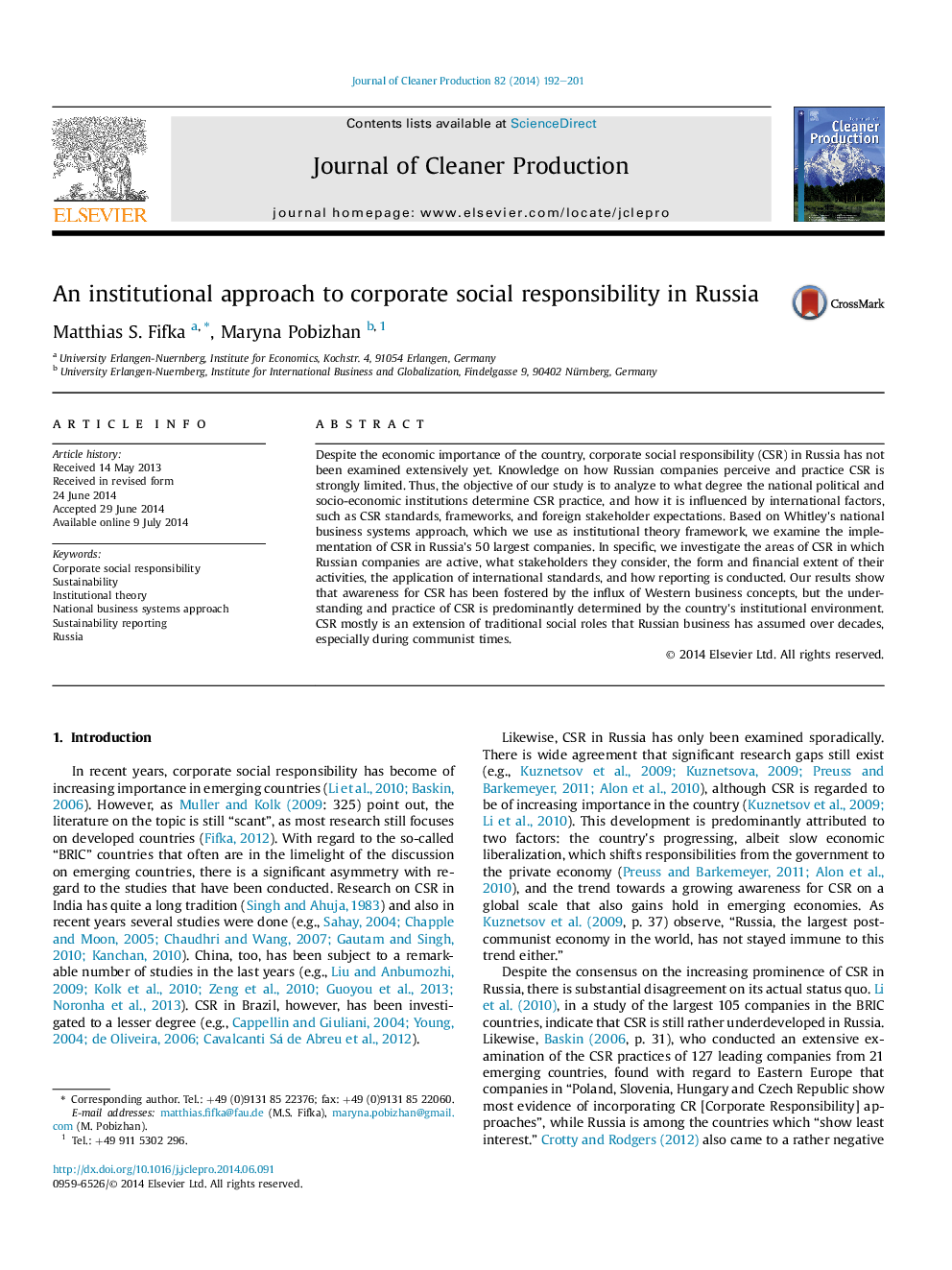| Article ID | Journal | Published Year | Pages | File Type |
|---|---|---|---|---|
| 8105813 | Journal of Cleaner Production | 2014 | 10 Pages |
Abstract
Despite the economic importance of the country, corporate social responsibility (CSR) in Russia has not been examined extensively yet. Knowledge on how Russian companies perceive and practice CSR is strongly limited. Thus, the objective of our study is to analyze to what degree the national political and socio-economic institutions determine CSR practice, and how it is influenced by international factors, such as CSR standards, frameworks, and foreign stakeholder expectations. Based on Whitley's national business systems approach, which we use as institutional theory framework, we examine the implementation of CSR in Russia's 50 largest companies. In specific, we investigate the areas of CSR in which Russian companies are active, what stakeholders they consider, the form and financial extent of their activities, the application of international standards, and how reporting is conducted. Our results show that awareness for CSR has been fostered by the influx of Western business concepts, but the understanding and practice of CSR is predominantly determined by the country's institutional environment. CSR mostly is an extension of traditional social roles that Russian business has assumed over decades, especially during communist times.
Keywords
Related Topics
Physical Sciences and Engineering
Energy
Renewable Energy, Sustainability and the Environment
Authors
Matthias S. Fifka, Maryna Pobizhan,
